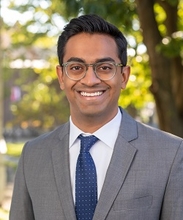QUANTITATIVE RESEARCH METHODS WORKSHOP
Abstract: We ask how machine learning can change a crucial step of the scientific process in economics: the advancement of theories through the discovery of “anomalies.” Canonical examples of anomalies include the Allais Paradox and the Kahneman-Tversky choice experiments, which are concrete examples of menus of lotteries that highlighted flaws in expected utility theory and spurred the development of new theories for decisionmaking under uncertainty. We develop an econometric framework for anomaly generation and two algorithmic procedures to generate anomalies (if they exist) when provided a formal theory and data that the theory seeks to explain. Our algorithmic procedures are general since anomalies play an important role across a wide variety of fields in economics. As an illustration, we apply our procedures to generate anomalies for expected utility theory using simulated lottery choice data by an individual who behaves according to cumulative prospect theory. We produce novel anomalies for the independence axiom based on the probability weighting function that to our knowledge have not been noticed before. While this illustration is specific, it is our view that automatic anomaly generation can accelerate the development of new theories.
Ashesh Rambachan is an assistant professor in the economics department at MIT. He studies economic applications of machine learning, focusing on algorithmic tools that drive decision-making in the criminal justice system and consumer lending markets and developing algorithmic procedures for discovering new behavioral models. He also develops methods for robust causal inference in cross-sectional and dynamic settings. Professor Rambachan earned his PhD in economics from Harvard, after spending a year as a postdoctoral researcher at Microsoft New England.
This workshop is open to the Yale community. To receive announcements and invitations to attend, please subscribe at https://csap.yale.edu/quantitative-research-methods-workshop.
This series is sponsored by the ISPS Center for the Study of American Politics and The Whitney and Betty MacMillan Center for International and Area Studies at Yale with support from the Edward J. and Dorothy Clarke Kempf Fund.
